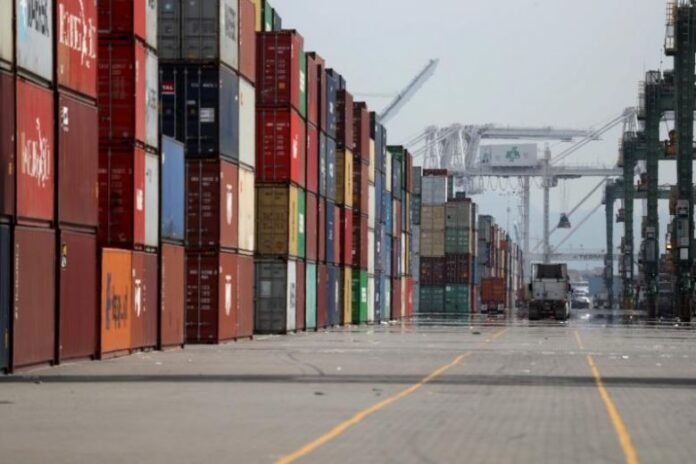Data released by the State Bank of Pakistan (SBP) on Tuesday revealed that Pakistan’s current account recorded a surplus for the second consecutive month in April, primarily driven by reduced imports.
In April, the country achieved a surplus of $18 million, a significant improvement compared to the current account deficit of $640 million recorded last year. This follows the surplus of $654 million in March, marking the first surplus since November 2020 and the highest since February 2015.
Over the course of the current fiscal year’s 10 months, the current account deficit reached $3.25 billion, showcasing a remarkable decline of 76% compared to the $13.65 billion deficit during the same period last year.
The SBP data highlights a 38% year-on-year reduction in the import of goods, amounting to $3.7 billion in April. Similarly, exports experienced a 33% decline, reaching $2.11 billion. Remittances also decreased by 29%, totaling $2.2 billion.
Facing critically low foreign exchange reserves last year, the government implemented restrictions on imports of non-essential items. Although some of these restrictions have been eased, companies from various sectors have voiced concerns about banks’ reluctance to open letters of credit (LCs). As a result, several manufacturers, particularly in the automotive sector, have temporarily halted production due to inventory shortages.
Furthermore, international institutions such as the International Monetary Fund (IMF), World Bank, and Asian Development Bank have revised Pakistan’s growth forecasts downwards, projecting an economic expansion ranging from 0.4% to 0.6% for the current fiscal year.
Pakistan’s foreign exchange reserves have dwindled to $4.38 billion as of May 5, an amount insufficient to cover even one month’s worth of imports. To mitigate the risk of default as reserves reach a critical level, the country is working to revive a crucial loan program with the IMF.
























